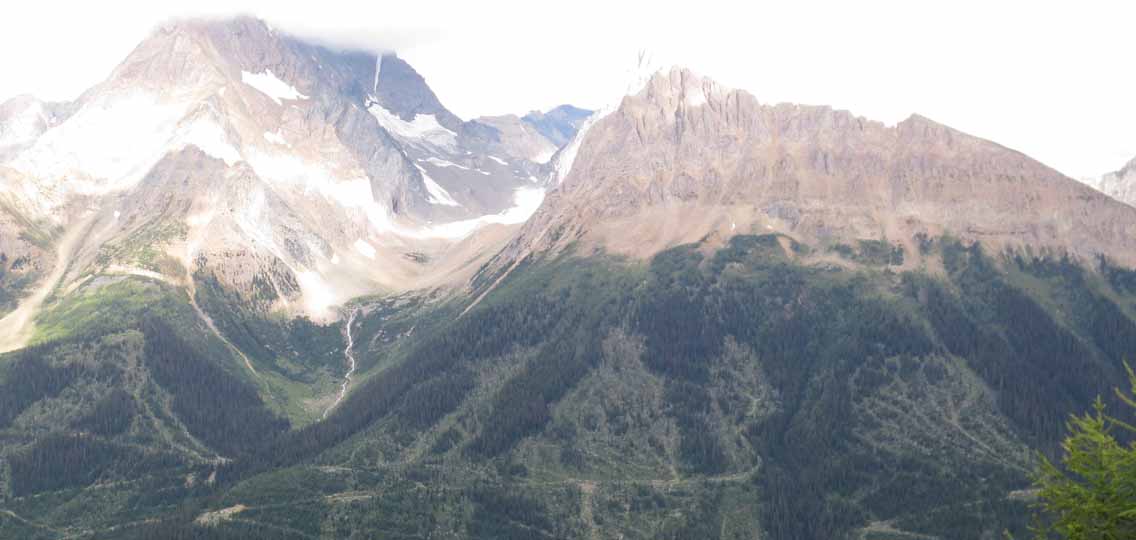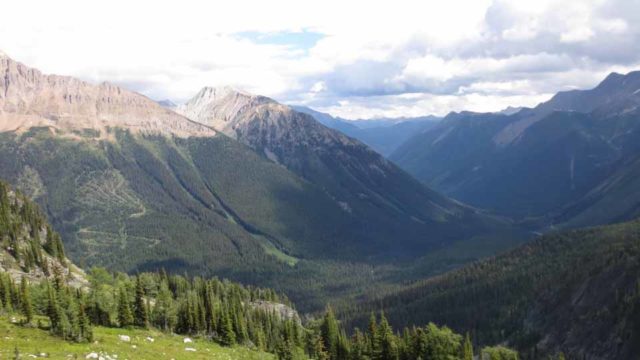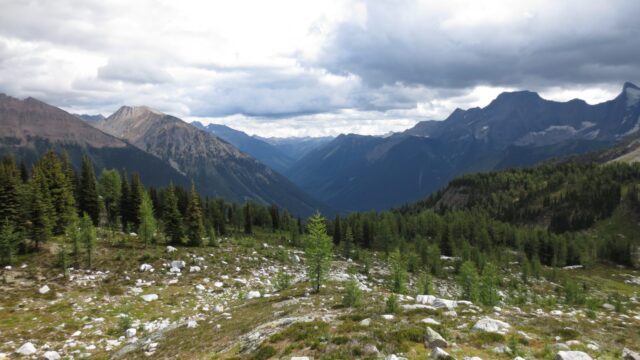Last week, the Supreme Court of Canada ruled against the Ktunaxa Nation’s attempt to protect their sacred land Qat’muk, also known as Jumbo Valley.
A case that could have ensured Indigenous peoples’ land-based spiritual beliefs are granted the same protection afforded to other religions ended in disappointment last week. The Supreme Court of Canada dismissed the Ktunaxa Nation’s bid to protect their sacred land in the Jumbo Valley from the development of a year-round ski resort.
The area, known to the Ktunaxa as Qat’muk, is believed to be home to the Grizzly Bear Spirit, a principle spirit within the community’s belief system. The area is also important habitat for grizzly bears — a species of special concern under the federal endangered species law. The Ktunaxa believe that if the project goes ahead it will desecrate Qat’muk, driving Grizzly Bear Spirit away and rendering their spiritual practices meaningless. It will also mean that the Ktunaxa cannot pass on practices and beliefs to future generations which will end these aspects of their culture.
This was the first time Canada’s highest court had the opportunity to interpret section 2(a) of the Canadian Charter of Rights and Freedoms — which guarantees our right to religious freedom — in the context of a claim involving Indigenous land-based spiritual beliefs. The purpose of the Charter’s guarantee of religious freedom is to prevent government from interfering with profoundly personal beliefs governing one’s perception of oneself, the natural world, and the divine.
The decision: A missed opportunity to protect Indigenous sacred sites
The Ktunaxa Nation argued in their case that their religious beliefs and practices were not properly considered in the Government of British Columbia’s decision to approve the Jumbo Glacier ski resort project, and that this violated both their constitutionally protected Aboriginal rights and their Charter right to religious freedom.
For many Indigenous peoples, certain natural sites unmarked by temples, shrines, or other human constructions are considered sacred and are essential to their spiritual beliefs and practices. For this reason international law recognizes that decisions that substantially alter the character of, or deprive Indigenous peoples access to sacred lands or places, may deny Indigenous peoples the right to exercise their religious beliefs.
The case drew more than a dozen intervenors, including Ecojustice clients, Amnesty International Canada, on whose behalf we presented evidence detailing international human rights norms as well as case law from other countries and international bodies upholding Indigenous land-based spiritual rights. Although this was the first time the Supreme Court of Canada had considered how religious freedom rights apply to Indigenous land-based spiritual beliefs, there are countless examples of such claims around the world where courts have recognized the need to protect Indigenous peoples’ relationships to their traditional lands, and spiritually important places.
The need to provide rigorous protections for these rights is supported not only by our Charter right to religious freedom, but by the recognition that a history of discrimination, marginalization, and dispossession has harmed Indigenous peoples in Canada greatly. Equal protection before the law means we must avoid interpreting Indigenous peoples’ rights in a manner that perpetuates this historic and contemporary oppression. Despite all members of the Court recognizing the spiritual significance of Jumbo Valley to the Ktunaxa people, the majority ruled that protecting the Grizzly Bear Spirit according to Ktunaxa beliefs and customs was beyond the scope of the Charter protection of religious freedoms.
In short, the Court drew a line in the sand and said that, “the Charter protects the freedom to worship but does not protect the spiritual focal point of worship”.
This presents a major problem for the Ktunaxa and many other Indigenous peoples in this country whose spirituality, culture and history are all deeply tied to the land. Altering or destroying these sacred natural places would sever their land from its spiritual significance. This is quite different from many other religious traditions, in which deities are considered separate from the natural world, and gives rise to a unique spiritual vulnerability to harm from the destruction of sacred sites. This has proven a difficult concept for many non-Indigenous decision-makers to grasp.
We are not the only ones concerned by the decision’s potentially far-reaching implications. As Justice Moldaver cautions in his separate reasons in the Ktunaxa case:
“This approach also risks excluding Indigenous religious freedom claims involving land from the scope of s. 2 (a) protection. As indicated, there is an inextricable link between spirituality and land in Indigenous religious traditions. In this context, state action that impacts land can sever the spiritual connection to the divine, rendering Indigenous beliefs and practices devoid of their spiritual significance. My colleagues have not taken this unique and central feature of Indigenous religion into account. Their approach therefore risks foreclosing the protections of s. 2 (a) of the Charter to substantial elements of Indigenous religious traditions.”
While the Court’s decision is deeply disappointing, it is important to keep in mind that it does not mean that the ski resort will be going ahead anytime soon.
Keeping Jumbo wild: The picture on the ground
The Jumbo Valley ski resort has been opposed since it was first proposed in the early 1990s. The resort project would be located in the middle of a crucial international wildlife corridor. The Jumbo Valley is one of only two remaining areas in North America where bears can freely roam between Canada and the United States. Permanent development of the valley would likely lead to reduced grizzly populations locally, regionally and even continentally.
We have worked for years with local groups and environmental organizations to stop the development of the Jumbo Glacier ski resort. This includes our recent work with Wildsight and the Jumbo Creek Conservation Society, which led to B.C.’s environment minister determining that the project had not been substantially started, resulting in the expiry of a key environmental approval.
What this means is that the Jumbo Glacier ski resort’s future is anything but certain. The company cannot start construction on its project until it obtains a new environmental approval through a B.C. environmental assessment. This would likely prove to be very problematic for the company given that the original grizzly bear data used in the project’s assessment in the 1990s is wildly out of date.
But if they do decide to kick-start the process again, Ecojustice will be ready to deploy our team to help keep Jumbo wild.
B.C. government’s commitment a glimmer of hope
In early September 2017, the newly elected B.C. Cabinet vowed to work in partnership with First Nations and Indigenous peoples to adopt and implement the United Nations Declaration on the Rights of Indigenous Peoples (UNDRIP), the Truth and Reconciliation Commission (TRC) Calls to Action and the Tsilhqot’in Supreme Court decision. In all of the government ministers’ mandate letters, the Premier included a requirement that they review policies, programs and legislation to determine how to bring the principles of UNDRIP to action in British Columbia.
Among other things, UNDRIP requires states to ensure preservation of the fundamental characteristics of specific ceremonial and sacred sites, so that Indigenous peoples can exercise their religious and spiritual traditions. It also requires governments to avoid actions that have the effect of depriving Indigenous peoples of their cultural values.
We remain hopeful that the government will honour these promises to implement the concept of free, prior and informed consent from Indigenous peoples for projects that will impact their rights.
In the meantime, Ecojustice is committed to supporting efforts to meaningfully recognize Indigenous rights in this country and advancing the cause of genuine reconciliation, which will benefit all Canadians.



